August 9, 2014
|
Steve Dennie, Communications Director
Here is information taken from a number of sources about the Ebola epidemic. The outbreak is being covered well by the major US newspapers and by international media sources. That’s encouraging. Here are tidbits from here and there, with an emphasis on Sierra Leone, where the United Brethren church has about 70 churches. The statistics about total confirmed cases and deaths in each country are the latest (as of Saturday evening, August 9) from the Centers for Disease Control and Prevention.
West Africa
On August 8, the World Health Organization described the Ebola outbreak in West Africa as an international public health emergency requiring an extraordinary response to stop its spread. It is the largest and longest outbreak ever recorded of Ebola.
The Ebola outbreak is focused in three neighboring countries: Guinea (where it started), Liberia, and Sierra Leone. Total confirmed cases: 1,779. About 961 have died.
Many people are avoiding hospitals, no matter what their ailment. Doctors worry that deaths from malaria, dysentery, and other diseases will rise.
The disease can come from infected animals. Cooking kills the Ebola virus, but handling raw meat prior to cooking can pass it along. Ebola may also infect fruit bats, whose droppings on fruit and vegetables may pass it along to people.
More health workers are desperately needed not only to treat victims, but to track down everyone who came in contact with the victims—a very difficult task in West Africa.
Sierra Leone: 717 cases, 298 dead.
Ebola didn’t start in Sierra Leone, but Sierra Leone now records more new cases than any other country. It has become the epicenter of the epidemic.
A state of emergency has been declared. On August 4, an “enforced holiday” required that everybody stay home.
Every district in the country has recorded cases of Ebola. “Dead body management” teams, seven persons per team, have been formed in every district to dispose of corpses.
The hardest hit districts: Kenema (center of the diamond trade) and Kailahun. There have been 570 confirmed Ebola cases in Kenema and Kailahun. United Brethren churches exist in both places. Military troops have been sent to Kenema, along with police from Freetown and Bo (the two largest cities). Food prices in Kenema are soaring.
On August 7, the army established a complete blockade of Kenema and Kailahun, with 16 checkpoints blocking the major highways. Except for essential needs, nobody can enter or leave. Soldiers patrol the bush to make sure nobody slips past the roadblocks.
Armed soldiers surround homes of the infected to keep them isolated, and homes are searched to make sure sick persons are quarantined. Family members, distrustful of medical workers, have forcibly removed sick relatives from clinics and taken them home, putting many more people at risk.
Buckets of chlorine sit outside restaurants so people can wash their hands. People have stopped shaking hands.
One nurse who contracted Ebola and died in Kenema was the wife of a United Brethren pastor.
At the UB hospital in Mattru, a patient who had tested positive for Ebola escaped. He was later found vomiting blood on the way to Bo, and was taken to the Ebola ward at Kenema. At last report, three workers at Mattru had contracted Ebola.
Here’s an example of how Ebola spreads. I man caught Ebola from a female patient in Kenema, who died. The man then traveled to Bonthe, where he infected at least one person. Then he went to Freedom and got himself admitted to the Macauley Street hospital, where he infected an intern who has now fallen ill.
In Freetown, vehicles with loudspeakers go up and down the streets, blaring messages to educate the populace about Ebola. Many people continue to deny that Ebola is for real, claiming that the deaths are actually coming from other diseases, like cholera, and then attributed to Ebola.
The hospital in Kenema, the main one in the country fighting the disease, is mostly empty. A Western medical technician told people, “Don’t touch the walls! Totally infected.”
Over 20 healthcare workers at the Kenema hospital have died from Ebola, including nurses, support staff, and the country’s leading doctor who was spearheading the battle against Ebola. People view the hospital as a death trap, because so many patients and health workers have died there. They are afraid of potentially catching Ebola from an infected nurse. Those who do come to the hospital are in very advanced stages of the disease.
A temporary isolation ward, a tent, was built at the back of the hospital grounds. It is packed to capacity with about 50 patients. About four people die there each day. But many more die in the city and beyond, frustrating attempts to isolate and control the disease.
On a positive note: survivors are released from the Ebola ward every afternoon. They receive some money to get home (about $10 US), fresh clothes, and a certificate declaring them Ebola-free. As they leave, the staff photograph and congratulate them. Children also receive a toy. A seven-year-old boy was given a small plastic truck, which he proudly showed off to nurses before leaving the compound.
Guinea: 495 cases, 367 dead.
Researchers think Patient Zero–the first Ebola victim–was a 2-year-old boy who died on December 6, 2013, in a village in southeast Guinea. A week later his mother died, followed soon by his sister and grandmother. All showed the typical symptoms–fever, vomiting, and diarrhea–but didn’t know why they were sick.
Two mourners at the grandmother’s funeral took Ebola to their village, and a health worker took it to another village, where both he and his own doctor died. They infected relatives from other towns. By March, when the epidemic was recognized as Ebola, it had spread to three countries.
The outbreak occurred in a border region where people travel a lot, and where roads had been improved to facilitate travel. As one article noted, “The disease was on the move before health officials even knew it had struck.”
In Conakry, the capital city, a man collapsed in the street and nobody helped him for five hours, fearing they would catch the disease. Police finally came, but left him lying there.
In Guinea, 145 healthcare workers have been infected, and 80 have died.
Guinea closed its borders with Sierra Leone and Liberia.
Liberia: 554 cases, 294 dead
A state of emergency has been declared for the next 90 days. The US is advising people to avoid traveling to Liberia, and the families of diplomats have been evacuated.
The Washington Post reported that there are bodies in the streets, and people are afraid to bury the dead. Ebola is most contagious after the victim is dead.
Soldiers have quarantined neighborhoods, schools are closed, people are lining up at banks to withdraw money, and food is being hoarded.
Some hospitals have closed, as healthcare workers–63 have been infected, and 32 have died–fear catching the disease and often just walk off the job.
In Monrovia, the capital, a hospital closed after many workers contracted Ebola. Those victims included the hospital director (from Cameroon), six staff, two nuns, and a 75-year-old missionary from Spain.
Alexis Moens of Doctors Without Borders said, “This is a dangerous place. There’s no system; there’s no isolation. You make mistakes here, you get infected.” He said he washes his hands 50 times a day.
On Saturday, August 9, an angry crowed on Liberia’s busiest highway protested against the government’s slowness in collecting bodies of Ebola victims. Riot police were called out.
Nigeria: 13 confirmed cases, 2 deaths
Nigeria declared a national state of emergency on Friday, August 8.
An American of Liberian descent caught Ebola in Liberia. He traveled on to Nigeria, where he died. A nurse who helped treat him in Nigeria has also died, and five other persons have been isolated with symptoms of Ebola.
The hospital where the people died was evacuated so it could be thoroughly decontaminated.
Other Countries
A Saudi man in his 40s died on August 6. He was hospitalized on August 4 after returning from a business trip to Sierra Leone. However, he tested negative for Ebola. Saudi Arabia announced that it will not issue visas to Muslims from Guinea, Liberia, and Sierra Leone wanting to make the pilgrimage to Mecca.
A 72-year-old woman died at London’s Gatwick airport after arriving from Sierra Leone. She had been vomiting and sweating heavily. The plane and its 128 passengers were quarantined. However, test showed that she didn’t have Ebola.
South Korea withdrew its invitation to three Nigerian students to attend the World Congress of Global Partnership for Young Women, to be held in Seoul August 4-15. A total of 28 African students will still attend; some will be required to undergo health inspections. Many people called for cancelling the event altogether, and some students who had signed up to volunteer backed out.
In Ghana, a man from Burkina Faso died with symptoms of Ebola; blood samples are being tested.
In Benin, authorities have tested a couple patients who are suspected of having Ebola.
An Ontario hospital was testing a man with symptoms similar to Ebola. He had recently traveled to Africa.
The Peace Corps removed its 340 volunteers from West Africa (130 of them from Sierra Leone).
British Airways and other airlines have cancelled flights to the affected countries.
In the US, the Centers for Disease Control and Prevention issued its highest emergency alert, a Level 1—“all hands on deck”–response. As of Wednesday, August 6, 240 CDC staffers were working on Ebola, and 30 had been sent to West Africa, with more on the way.
A Level 1 emergency has been called only two other times—In 2005 for Hurricane Katrina, and in 2009 for the H1N1 influenza outbreak.
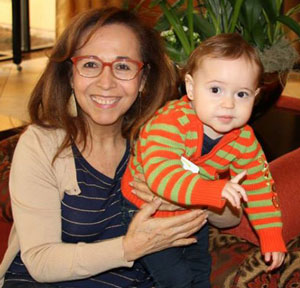

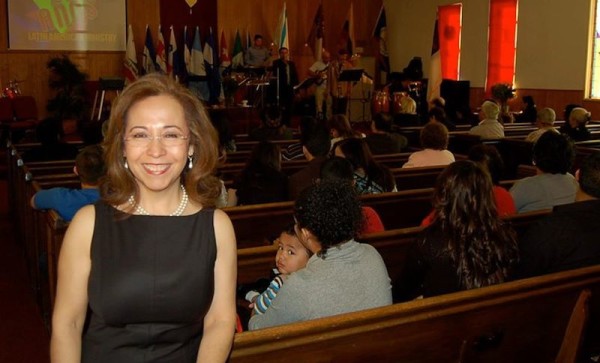
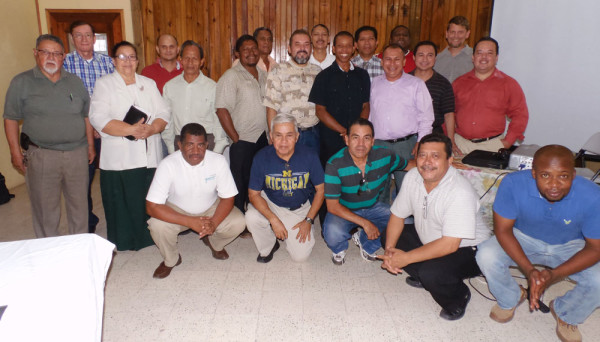
 Jeff Bleijerveld (right), Director of Global Ministries
Jeff Bleijerveld (right), Director of Global Ministries Reina Casco, wife of Bishop Denis Casco of Mexico Conference, underwent surgery on Sunday, September 7, for what Bishop Casco described as “brain bleeding.” The surgery was done at Huntington Memorial Hospital in the Los Angeles area, where the Cascos live.
Reina Casco, wife of Bishop Denis Casco of Mexico Conference, underwent surgery on Sunday, September 7, for what Bishop Casco described as “brain bleeding.” The surgery was done at Huntington Memorial Hospital in the Los Angeles area, where the Cascos live. Dates: January 3-10, 2015.
Dates: January 3-10, 2015.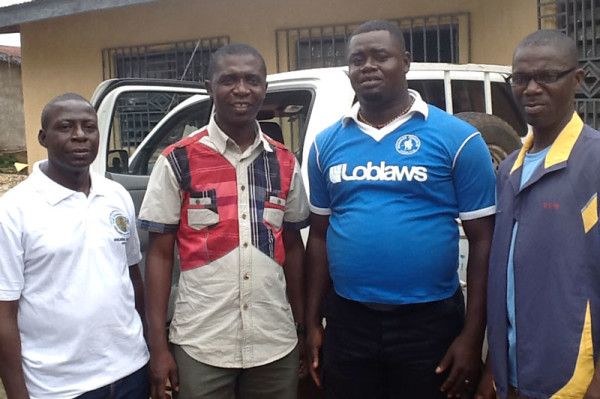
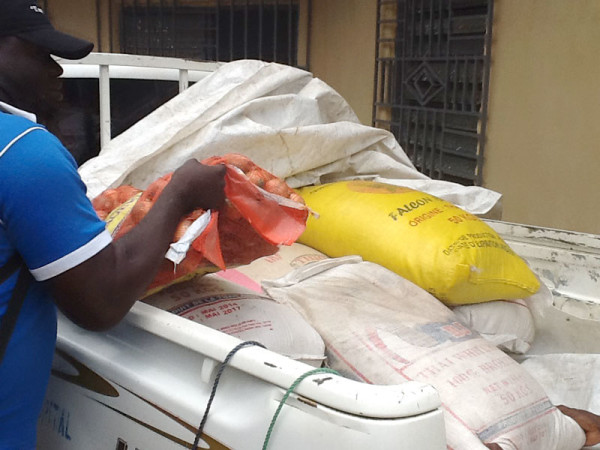
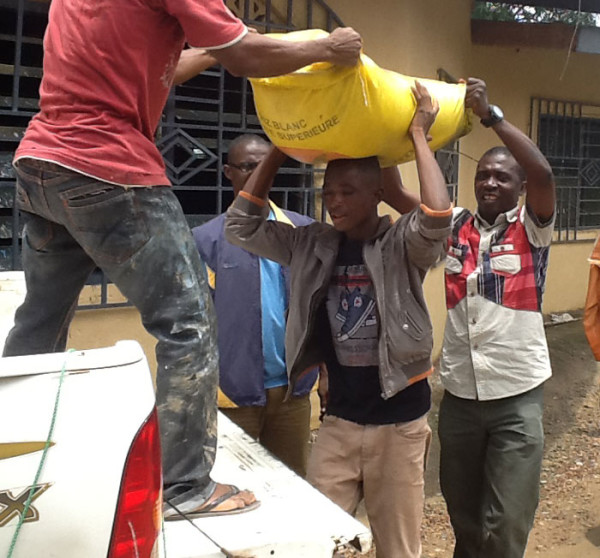
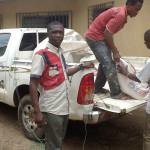
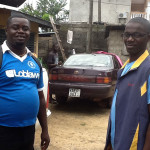
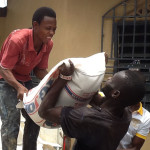
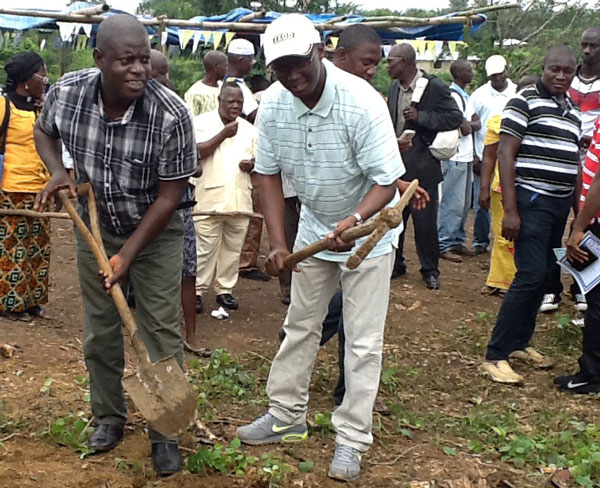
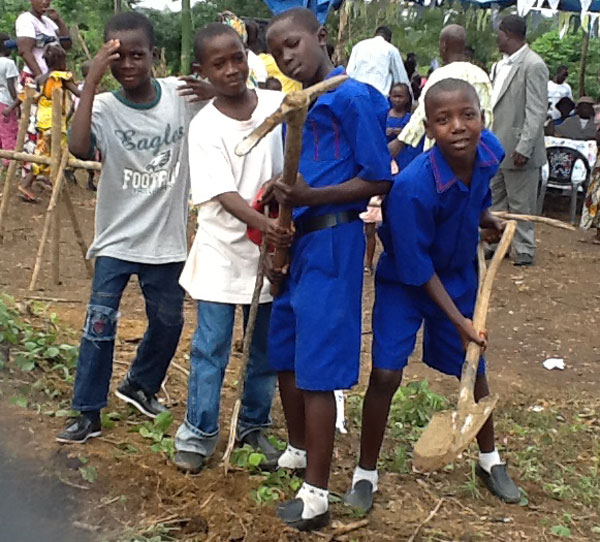
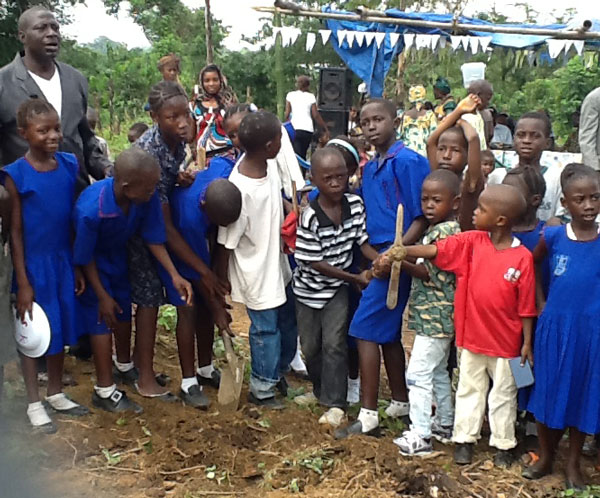
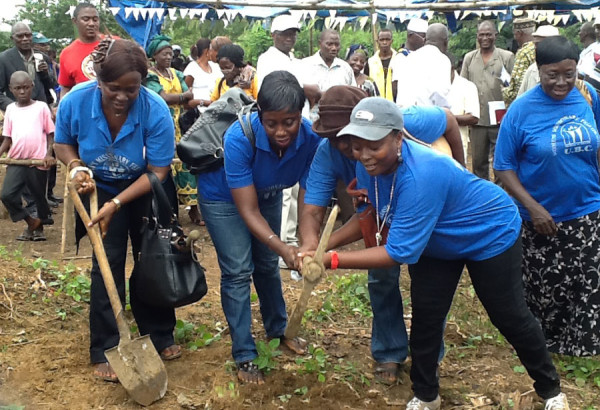
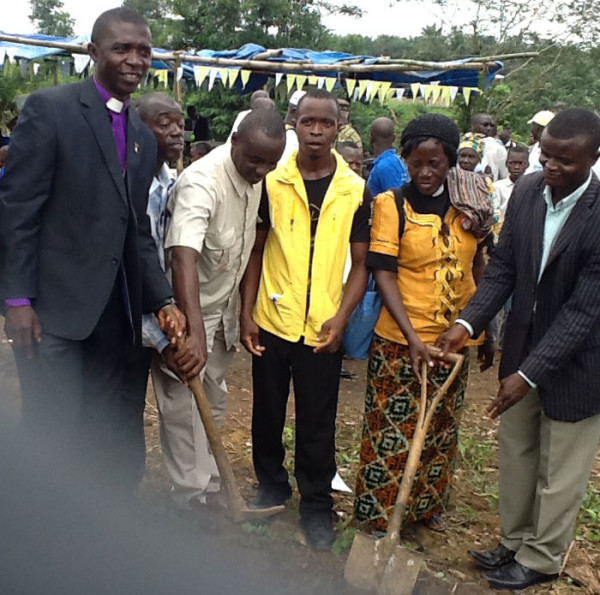
 The conference has used education to support church planting efforts in other regions, and hopes this will provide further opportunity to evangelize and disciple young people and their families.
The conference has used education to support church planting efforts in other regions, and hopes this will provide further opportunity to evangelize and disciple young people and their families. John Pessima (right), Bishop, Sierra Leone Conference
John Pessima (right), Bishop, Sierra Leone Conference